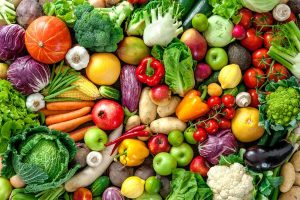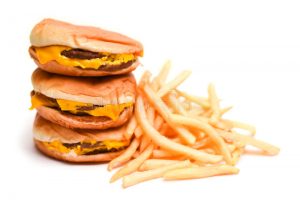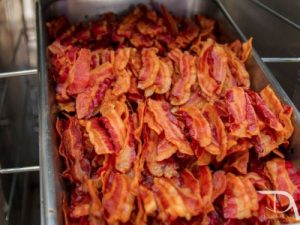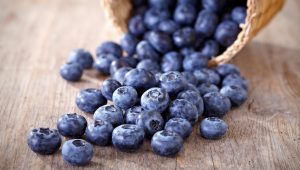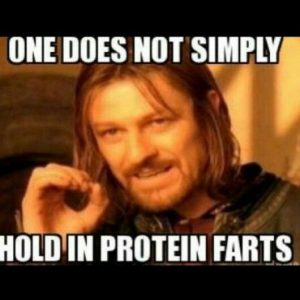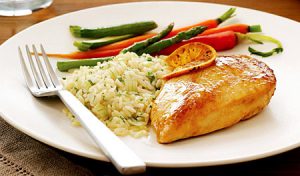When it comes to nutrition there seems to be a huge grey area on what’s right and wrong.
I suppose that’s due to all of the conflicting information out there on multiple platforms. One podcaster might tell you that vegan is your healthiest choice, but some article you read at lunch will tell you that a ketogenic approach is a much better option. At dinner you read a blog post telling you that the best form of dieting is the carnivore diet and you should eat nothing but meat for the rest of your life.
All of this noise makes your brain want to explode, and probably leads you right into your pantry looking for the Coco Puffs (God they’re delicious).
I want to weigh-in on this debate and share with you some of my practical experience over the last 10 plus years of experimenting with different diets on myself, my clients, friends and family members.
First off, let’s briefly go over the make-up of some of the popular diets out there.
Standard American Diet
The average American consumes tons of processed refined sugars, flour and refined carbohydrates, saturated fats, artificial dyes, colorings and sweeteners, low quality vegetable oils and proteins such as beef, chicken and fish.
The standard American diet is the worst of the worst. It’s highly inflammatory due to the sugar and refined carbs and can lead to insulin resistance from the excessive amounts of sugar, which can eventually turn into type 2 diabetes. This style of eating has also played a major role in the rise in obesity, cancer and heart disease. Our eating habits as a society have gotten progressively worse and are the driving force in disease and illness.
Keto
You may have heard some of the buzz lately about the ketogenic diet. This is a diet where your daily caloric intake is made up of a high amount of fat, low-moderate protein and a very low amount of carbohydrates. The idea here is that since you’ll have a very low amount of glucose (sugar) in the blood from consuming a very low amount of carbohydrates, your body’s primary source of fuel will be fat and you will use up most of your stored body fat.
The Ketogenic Diet can serve a purpose, if you do it right that is. Since reaching a state of ketosis will require a high amount of fat, many people will use that as an excuse to throw down foods like bacon, cheese, fast food burgers without the bun, and pork rinds. A major key component when following a ketogenic diet should still be to focus on the quality of the micronutrients, rather than just the macros. Meaning you should get your fat from high-quality fats like avocados, coconut oil, nuts, seeds, fish oil, eggs and grass fed beef. The nutritional value of these fats far exceeds fats like bacon and pork rinds so just be smart about your choices.
I also don’t believe that the ketogenic diet is the best idea for athletes and those who participate in strenuous activities due to the lack of carbohydrates. Carbs are essential for muscular recovery and if you keep breaking down muscle tissue through rigorous training it will become very difficult to recover from those workouts without an adequate amount of carbohydrate, which can then lead to a weaker, smaller you.
One of the biggest downsides I see with the ketogenic diet is that you’ll have to avoid many beneficial fruits in order to achieve the state of ketosis. Many fruits like blueberries and blackberries are packed with antioxidants and nutrients that are extremely beneficial to our overall health. Neglecting certain fruits (and the antioxidants they come with) can leave a chink in your armor of health in my opinion.
However, I do believe we should “earn our carbs” and eat congruently with the physical work we’ve done for the day. The intensity and duration of your days training will determine the amount of carbs you should eat that day. If you’re someone who doesn’t exercise much and would just like to get healthier and drop some body fat then this can be a good start for you. You’ll have less of a spike in insulin throughout the day which, if you’re severely overweight, you’ve had enough of for now and a ketogenic approach can be a good way of working some healthy fats, proteins and vegetables into your diet.
Intermittent Fasting
Intermittent fasting is pretty popular these days. This is where you’ll fast for a window of about 12-14 hours and consume all of your calories in a much smaller feeding window, rather than just eating all day.
Intermittent fasting can be a great form of dieting. By fasting for 12-14 hours it gives the digestive system enough time to digest and process the food you’ve eaten that day. It can also be a very efficient way for burning fat due to the reduced blood glucose levels from the fast. Again this will be dependent on the food you eat, and not just the method of dieting. There’s a very big difference between fasting and eating some eggs and blueberries vs a Frosty from Wendy’s.
The downside here can be more of a craving for crappy foods earlier in the day and from my experience, less energy before you break that fast. Also keep in mind that if you’re training in the morning you’ll probably lose some muscle mass from neglecting pre or post workout food.
Vegan/Vegetarian
A vegan diet is where you’ll cut out all animal products entirely and only consume fruits, vegetables, grains and plant based proteins.
Vegetarians will eat some animal products like eggs and maybe fish, but will not eat meat.
A vegan or vegetarian diet absolutely has its benefits. For one, most of the foods eaten (if you’re not eating crap) are much easier on the digestive tract and have much less of an inflammatory response. Keeping inflammation down is key to our health and longevity, but we also have to be aware of the deficiencies these kinds of diets can create.
For example, the lack of meat can create a deficiency in your body’s level of iron, B-12 and even testosterone. These minerals, vitamins and hormones also play a major role in our health and well-being so it’s extremely important to have your blood tested regularly (every 6 months) if you’re following a vegan or vegetarian diet. This way you can spot the deficiencies and supplement accordingly.
Bodybuilding Diet
For years, many bodybuilders have eaten multiple times per day, high amounts of proteins, moderate fat and a blend of high and low levels of carbohydrates depending on the goal of that particular diet.
The benefits of this style of dieting can be an increase in muscle mass, an elevated metabolism and less body fat. Like the rest of the diets I mentioned above, the quality of the foods here will also play a major roll.
Some of the downsides are constantly worrying about what to eat, preparation of food, digestive stress from the high protein intake (farts galore), and, if you’re eating high amounts of carbohydrates, that will certainly lead to a higher secretion of insulin which could eventually lead to insulin resistance as well.
To touch on the protein issue, there have been plenty of experiments done that show you actually do not need the excessive amounts of daily protein that were once advertised. The supplement and meat industry saw bodybuilding as a way to convince you that you’ll need more protein to grow; even up to 2 x’s your bodyweight in grams of protein per day!
This has been proven to be completely unnecessary and is certainly not good for your health. A protein intake that high will only stress the digestive system and put excess stress on the kidneys. It has also been scientifically proven that you will have the smelliest car on planet Earth and your girlfriend will hate your guts. Literally.
With that said, you’ll only need about .5-1 gram of protein per pound of bodyweight per day.
Tying it all together
As you can see, there are plenty of benefits and downsides to each style of eating. From my experience, the biggest factor is having the discipline to refrain from eating shit foods. I don’t care if you’re vegan, gluten free or what title you give yourself, shit foods will still lead to an unhealthy lifestyle and create some issues somewhere along the line. Just to be clear, I’m talking about any foods that are man-made or processed. That goes for sugar, flour, artificial sweeteners and processed oils like vegetable oil.
So let’s start with the three most important words of any diet…
EAT. REAL. FOOD.
Regardless of the style of dieting, you want to focus on earth grown nutrients. They are foods you can kill, catch, or pick from the dirt. So, sources of protein like fish, chicken breast, turkey breast, grass fed beef and eggs, or for you vegans/vegetarians maybe that’s legumes. Unprocessed carbohydrates like sweet potatoes, white potatoes, rice, quinoa, oats and fruit. Fats like coconut oil, avocado, nuts, nut butters, seeds and fats from proteins like grass-fed beef and whole eggs. Finally, do not forget to eat a ton of fresh vegetables.
Now, we can split hairs and start to argue about fruit, grains and white potatoes and whether they’re good for you or not. In my opinion these foods will serve you just fine as long as you don’t eat 15 bananas and potatoes every day. Remember that it still comes down to the amount of calories consumed vs calories burned, which will vary amongst each individual. For now, just focus on removing any crap from your diet and consume all of the Earth-grown food I just talked about. That is THE MOST important step.
From my experience working with people over the years, I have never witnessed a decline in health, energy, performance or blood work from eating multiple meals throughout the day. In fact, I have only seen a positive benefit. That’s goes for everything I just mentioned as well as positive changes in body composition (i.e. body fat reduction and muscle gain).
With that said some people may not tolerate certain foods as well as other people. Some foods could result in fatigue, bloating or maybe a runny nose. If that’s the case simply remove that food from your diet for a while and then try working it back in after 6-8 weeks and see if you notice a difference.
I also see a benefit to eating a wide variety of earth grown foods in your diet. That entails not eating the same foods over and over again every day. This will help you avoid potentially developing certain food allergies or sensitivities.
Maybe one day you remove dairy entirely from your diet. The next day eat only vegan sources of protein. The next day work some red meat back in and so on.
Once you get this in check you will start to feel better and see physical changes to your physique. Then you’ll start to have less and less cravings for shit foods because your gut flora will begin to change for the better.
The bacteria in your gut plays a major role in our health, immune system and even cognitive function. Which is why removing low quality, inflammatory foods should be your first priority before you even think about counting your macros.
From there you’ll be able to see more clearly what diet feels best for you.
Instead of arguing which diet is best and which will kill you tomorrow, understand that there are pros and cons to any one way of eating. It’s my opinion that the healthiest diet for most people is the one with the most variety, and not too extreme in one direction or another.
I really hope this article helps clear up some of the confusion out there. Your first step is to cut out the bad and only focus on the good. However you want to do that is up to you. Just be sure to do it.
Thanks for reading. I’ll catch you next time.

